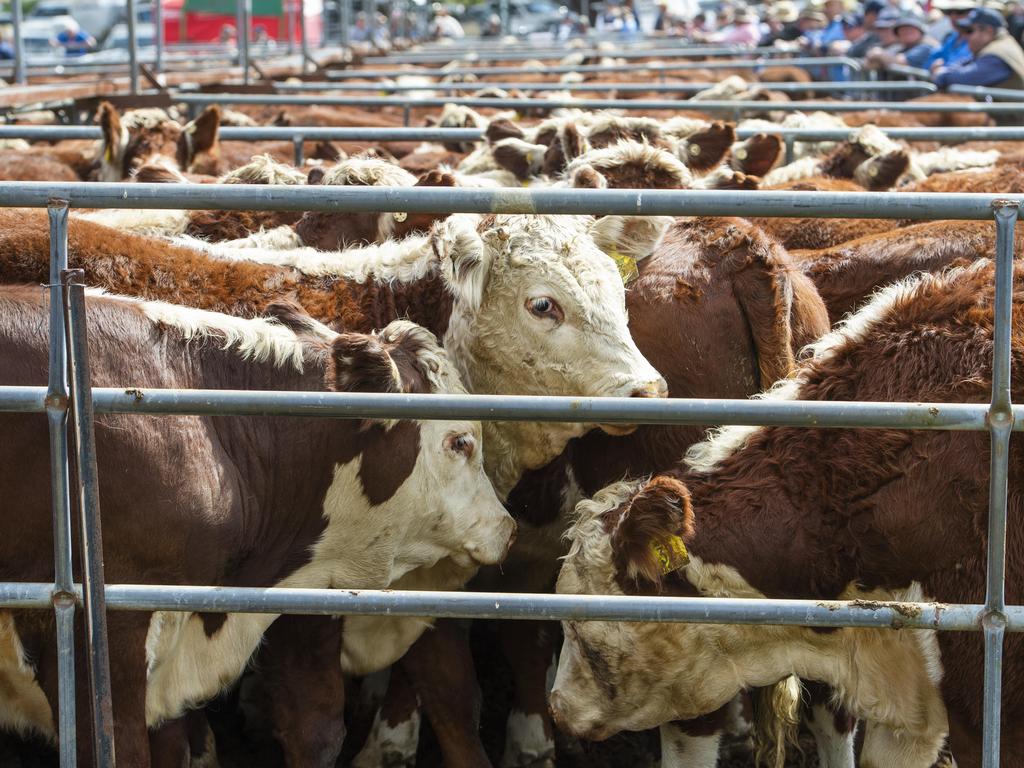Fletchers International request vendor declaration for grain or grass fed lambs
Fletchers International has been requesting a signed declaration from farmers for lambs. This is what we know about their buying specifications and the document – which includes 25 questions.

Specialist orders and issues that were once the domain of direct selling have started appearing in saleyards for lamb, posing questions about how they should be dealt with during the auction process.
At the Bendigo prime market on Monday, major export buyer Fletchers International at Dubbo requested information on whether the feed lambs had been finished on – grain or grass.
The company, which is a key driver of export lamb prices at southern saleyards, has changed its buying specifications at recent markets as it fills an order for grass-fed lamb weighing less than 30kg cwt.
On Monday, it stepped it up by requiring a signed declaration from vendors for any lambs it purchased. The document, seen by the Weekly Times, is quite extensive and includes 25 questions that cover a range of on-farm issues.
A key question was about feed and stated: “I am fully aware not to provide hand/supplementary feeding, grain feeding and these lambs are all grass fed.’’
The document, which is titled Fletchers International Farm Assurance Program – Grass, also goes into specific details about animal welfare and handling.
Some examples include:
•If lambs are required to be euthanized I will ensure humane destruction is carried out and death verified; and
•Structures are fit for purpose and of good standard and do not cause undue stress and injury; and
•All dead livestock are burned or buried as soon as possible (fenced off from other stock).
As the buyer, meatworks are entitled to ask for all kinds of declarations to suit customer requirements, and it is then up to the vendor selling the stock if they are comfortable signing up to the deal.
It is a pretty straight forward process for direct selling, which is where these special orders traditionally have been negotiated.
In the auction system, it can get messy, or it seemed to at Bendigo.
Some auctioneers were announcing if lambs were grass or grain fed, but then other pens didn’t have the declaration.
In the words of one auctioneer, it got “bloody confusing.’’
The potential issue is the adverse impact it can have, as the connotation can be that there is something wrong with the lambs that aren’t declared grassfed.

Certainly at Bendigo the buying group quickly became aware that Fletchers wouldn’t be active on lambs that had been grainfed or were off crop stubble.
Ultimately information is power in the auction system, and how information is put out to potential buyers is important in regards to creating something of a fair playing field.
This leads to another issue that has been creeping into the lamb market – grass seeds.
Due to the wet weather and the big grass season in a lot of areas, grass seeds have become a big issue, with meatworks reporting cases of significant carcass damage from corkscrew and speargrass.
The Weekly Times understands there was a push by the processing sector to have the breeding location of lambs announced at sales, particularly in regions that are more suspect for grass seeds, such as the pastoral country of NSW.
The move was resisted due to the fact there is farmers who take grass seeds seriously and manage lambs, and those who don’t, in all locations.
But buyers have been vocal about asking auctioneers for details on some drafts of lambs, and the price penalties for stock that can’t be guaranteed as clean can be severe.
There was a case at Bendigo on Monday that involved a big run of lambs from a NSW pastoral area.
They were declared as having a seed issue, and it arguably halved their value to sell between $35 to about $95.
There was a back story to this episode, as apparently a line of lambs from the same property and sold in January showed significant carcass damage from seed.
The buyers of these subsequently went back to the selling agent and vendor and claimed damages.
It highlights how farmers need to rethink the idea that if they sell through the auction system, they are immune from claims if stock aren’t fit for purpose. And it was the reason why the vendor involved wanted the seed declaration made on Monday to avoid any further disputes – a creditable attitude considering how costly it was.
What the industry is seeing at the moment, when you stand back a take a broader look at markets rather than just focusing on the cheaper price trends, is a shift in power back to buyers.
Gone is the buying intensity that meant any animal sold well; now, the market environment is about quality and premiums for cattle and sheep and lambs showing breed history and genetics (or, to look at it the other way, discounting for animals that don’t tick all the boxes).
With buyers having the power to shape their price around quality and other discerning factors, the information supplied and how it is relayed to buyers becomes more important.




